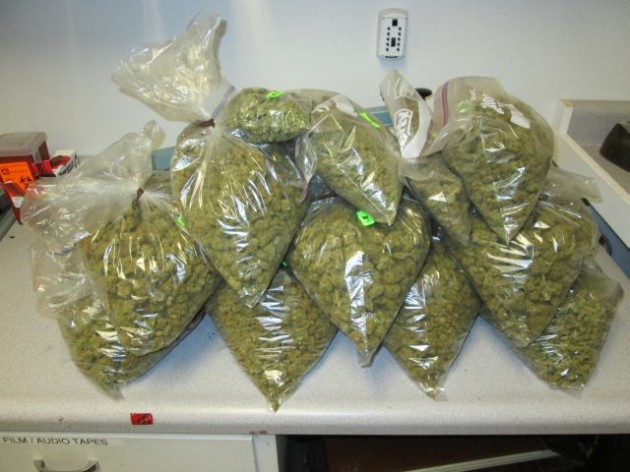So we’re going to vote on a marijuana initiative on Nov. 4. That’s certain. What is not at all certain is that most of us will vote for this measure. Here’s why: More than one-third of the people who signed the initiative petition were not voters. When it certified the measure for the ballot with 88,584 valid signatures, it said that only 64 percent of the signatures accepted for verification were valid. It was enough, but just barely.
Evidently, many of the signers were not registered voters, and there’s no guarantee they’ll sign up before the general election. Beyond that issue, there is this one: It’s hard to see how some of the stated purposes of the proposal can possibly be met.
This is not mainly a bill to get the state government out of the way of marijuana users. It is the opposite. The title of this proposed law is the “Control, Regulation and Taxation of Marijuana and Industrial Hemp Act.” It sounds logical that legalizing and taxing the marijuana business would take it out of the hands of criminals. But criminals don’t become law abiders overnight. If they now make money from the criminal side of marijuana, they’ll want to keep doing the same or something similar if and when this initiative takes effect.
The initiative says its purpose, among others, is to “permit persons licensed, controlled, regulated and taxed by this state to legally manufacture and sell marijuana to persons 21 years of age and older, subject to the provisions of this act.” Chances are that today’s pot growers, especially the big ones that may be connected with drug cartels, are not all that eager to apply for licenses and subject themselves to the control, regulation and taxation of the state. So they’ll keep doing what they’ve been doing, at least for a while.
The hope may be that a state-licensed marijuana industry would drive the illicit one out of business. But it can’t do that if licensed and regulated pot costs more than the illicit kind. And it’s hard to see how a regulated substance can possibly beat the bootleg kind on the issue of price.
One of the other stated purposes is to “prevent the diversion of marijuana from this state to other states.” How can this could be done without an air-tight system of keeping track of production, sales and consumption? And such a system would involve a big budget for inspectors and other record checkers.
In the interest of liberty and smaller government, some of us would like the state and federal authorities to quit worrying about what free citizens grow and sometimes smoke. But this measure gets the state much more intensely involved in marijuana, not less. (hh)



Ok, so this measure tells us that in order to get the government out of pot we have to get the government more involved in pot… huh?
The only thing that makes sense about this measure is that the people writing it must have been high…
Thank you Hasso, for this sensible opinion. I signed the petition thinking it was better than the current situation but now I’m not so sure. I strongly support a free market in this substance (and others). Being of a liberty-minded persuasion, it’s my contention that people should be the sole judge of the items they ingest or smoke. A one-time long ago economics professor said to our class, “no trade is worst, restricted trade better, unrestricted trade best.” I wish more people would learn some basic laws of economics.
“In the interest of liberty and smaller government, some of us would like the state and federal authorities to quit worrying about what free citizens grow and sometimes smoke.”
Unfortunately, it appears this measure will not deliver on that desire. On this issue I’ll vote NO and hope a better measure comes along that increases freedom and decreases government interference in our lives.
By the way, 64% signature validity is not great, but certainly not bad. Signature gathering is black and white. There is no gray because style points are not granted. When we did the signature gathering for two local petitions in 2012 we achieved an 81% rate. The County Clerk said 81% was an excellent rate. Also, we exceeded the minimum required signature numbers by a significant amount. These achievements provided only a moment of satisfaction. We would have been just as happy if we squeaked by. The bottom line is getting on the ballot.
Ray Kopczynski replied via email because the “captcha” setup apparently was not working:
“The hope may be that a state-licensed marijuana industry would drive the illicit one out of business. But it can’t do that if licensed and regulated pot costs more than the illicit kind. And it’s hard to see how a regulated substance can possibly beat the bootleg kind on the issue of price.”
Of course the same can be said about bootleg liquor… There will *always* be folks trying to circumvent regulations — regardless of their intent. And then there’s the issue of quality (liquor or marijuana) from regulated suppliers vs. bootleg…